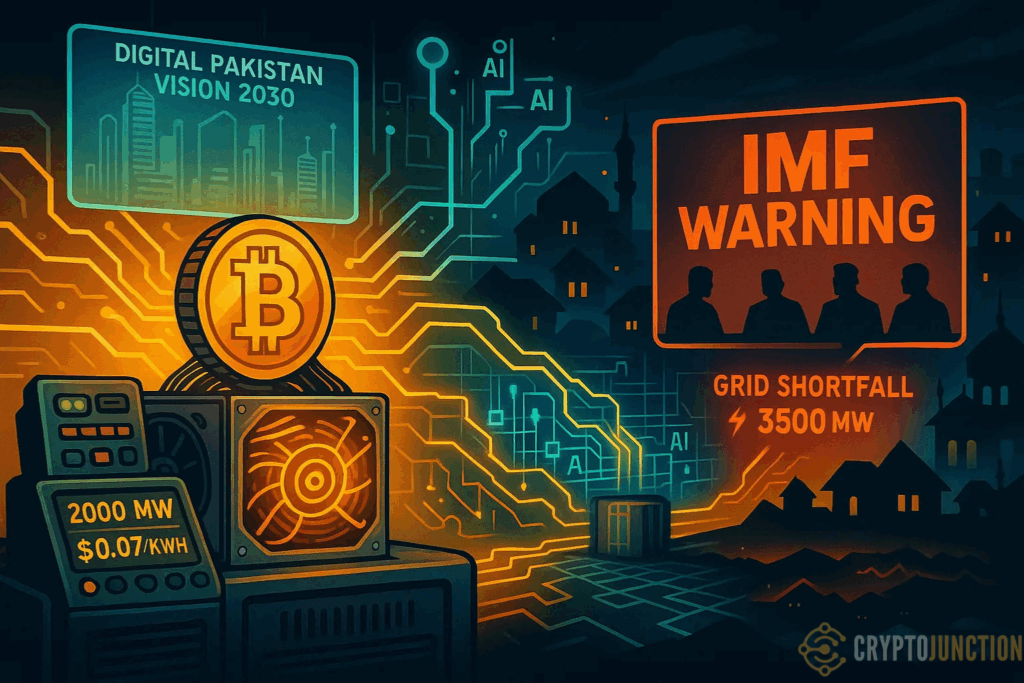Pakistan has seen a large push into crypto markets that has caught the IMF’s attention in a negative way. On May 24, 2025 Pakistan’s Cabinet Committee on Energy said go ahead with development of 2,000 MW for Bitcoin mining and AI databases. While the decision is in line with the “Digital Pakistan Vision 2030,” it has set off issues related to economy and environment.
At the core of the issue is the tension between what is technologically aggressive and what is fiscally responsible. The plan puts forth subsidised electricity at $0.07 per kWh to the Bitcoin miners. This is expected to bring in $1.2 billion annually. At the same time, there is a 3,500 MW daily power shortfall in Pakistan, and almost half of the rural population is dealing with daily outages.
Pakistan’s Role In Bitcoin Mining To Transform Energy Landscape
The Pakistan push into Bitcoin mining may transform the country’s economy, or it may not work out that way. IMF professionals report that the plan will see a rise in peak electricity demand by 2.5 times. It will require an additional $900 million in infrastructure, 38% of which is wasted to inefficiency. This in turn is very controversial.
Also, power will mostly come from coal, which in turn puts out an extra 12 million tons of CO2 annually. This breaks Pakistan’s promise to Paris and may see us pay out $450 million annually in fines. The issue of social equity adds to the fire, as mining is given subsidies. This, in turn, puts the cost onto the home consumer, which sees them pay double.
Struggles with Legal and Fiscal Issues.
Pakistan’s bitcoin mining is also a subject of issue regarding regulatory gaps. The IMF has brought to notice 14 compliance issues. These include environmental thresholds, licensing clarity, and foreign exchange repatriation rules. By May 2025, when the Pakistan Digital Asset Authority (PDAA) was established, the regulator will need to close in on these gaps quickly. Otherwise, it may lose out on the bailout support.
The IMF has greater concerns than those of energy. They project a 10.5% increase in what the consumer will see at the meter for electricity. Additionally, there will be a 0.7% increase in fiscal deficit. Although this plan is still in the early stages, it is already visible in a $1.1 billion tranche disbursement. This disbursement has been put on hold.
Bitcoin Reserves and Economic Risks
Pakistan is adding a new element of risk to its portfolio with the introduction of a national Bitcoin reserve. It aims to amass 1% of the world’s supply by 2030. The strategy includes cold storage, staking, and DeFi as part of the plan. However, a 40% drop in Bitcoin prices could put at risk $700 million.
The central bank’s push to use Bitcoin as a base for rupee transactions and sovereign crypto bonds has been put under the microscope. IMF officials also note that they see a very large role for Bitcoin in the economy. This is seen as a cause for more instability, which is concerning against the backdrop of our fragile economy.

